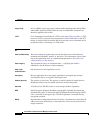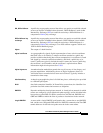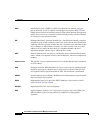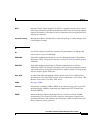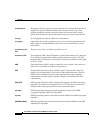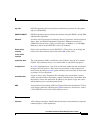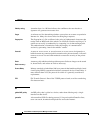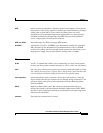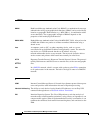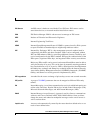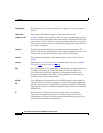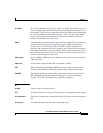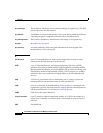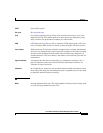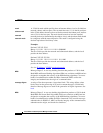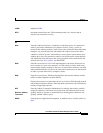
Glossary
GL-16
Cisco Router and Security Device Manager 2.5 User’s Guide
OL-4015-12
HMAC
Hash-based Message Authentication Code. HMAC is a mechanism for message
authentication using cryptographic hash functions. HMAC can be used with any
iterative cryptographic hash function, e.g., MD5, SHA-1, in combination with a
secret shared key. The cryptographic strength of HMAC depends on the
properties of the underlying hash function.
HMAC-MD5
Hashed Message Authentication Codes with MD5 (RFC 2104). A keyed version
of MD5 that enables two parties to validate transmitted information using a
shared secret.
host
A computer, such as a PC, or other computing device, such as a server,
associated with an individual IP address and optionally a name. The name for
any device on a TCP/IP network that has an IP address. Also any
network-addressable device on any network. The term node includes devices
such as routers and printers which would not normally be called hosts.
HTTP
HTTPS
Hypertext Transfer Protocol, Hypertext Transfer Protocol, Secure. The protocol
used by Web browsers and Web servers to transfer files, such as text and graphic
files.
hub
In a DMVPN network, a hub is a router with a point-to-point IPSec connection
to all spoke routers in the network. The hub is the logical center of a DMVPN
network.
I
ICMP
Internet Control Message Protocol. Network layer Internet protocol that reports
errors and provides other information relevant to IP packet processing.
Identical Addressing
The ability to reach devices having identical IP addresses over an EasyVPN
connection through the use of Network Address Translation.
IDS
Intrusion Detection System. The Cisco IPS performs a real time analysis of
network traffic to find anomalies and misuse, using a library of signatures it can
compare traffic against. When it finds unauthorized activity or anomalies, it can
terminate the condition, block traffic from attacking hosts, and send alerts to the
IDM.



